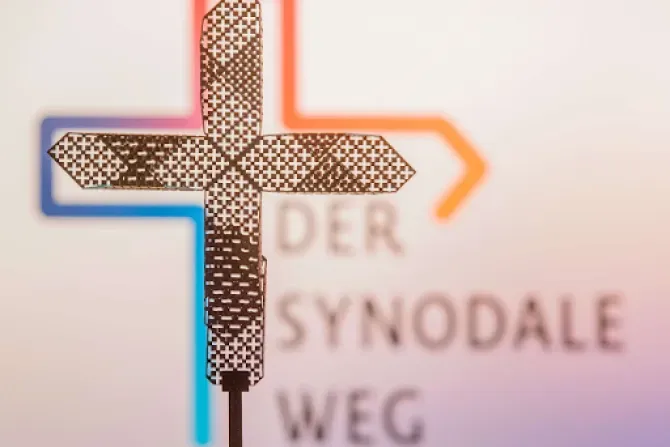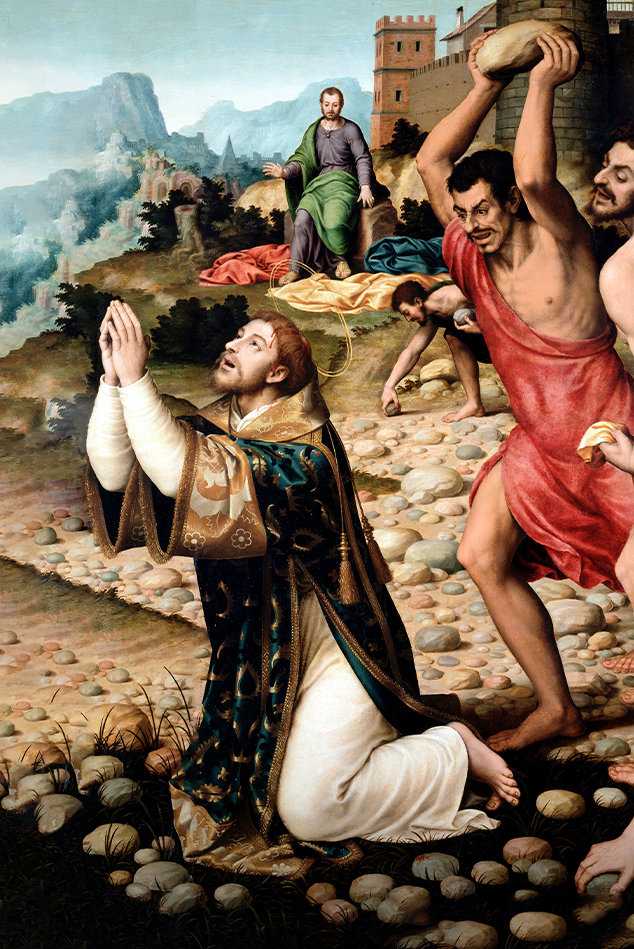German Catholics write letter to Rome over Synodal Way, warn of ‘serious scandal’
By AC Wimmer
Just one day before a crucial meeting of the German Synodal Way, a Catholic initiative announced it has turned to the Vatican in an attempt to avoid what it sees as the risk of “serious scandal” over the push for a permanent Synodal Council to oversee the Church in Germany.
The committee charged with turning the Synodal Way into a permanent council is scheduled to meet on Friday and Saturday this week.
On Thursday, the group Neuer Anfang (“New Beginning”) said it had written a letter to Rome, dated June 11, to determine whether the constitution of such a committee “complies with or violates the Church’s legal order.”
The group’s statement also warned that if bishops’ actions were found to be breaches of duty and the Church failed to disapprove or impose consequences, this could encourage believers to ignore Church norms. Neuer Anfang described this as the risk of a “serious scandal” that could permanently damage the faith of believers.
“It is important to remember that the deplorable practice of covering up sexual abuse has always involved disregard for the applicable norms of canon law,” the statement said.
“It is a puzzling, even unbearable, contradiction when those who claim to want to draw the necessary conclusions from this scandal act in a way that goes beyond legality and legitimacy by breaking the law.”
Key topics at meeting in Mainz
The synod committee, charged with turning the Synodal Way into an official Synodal Council, is scheduled to meet on Friday and Saturday, June 14 and 15, at a four-star-hotel in Mainz, some 26 miles West of Frankfurt.
The official agenda comprises three key topics: “Synodality as a Structural Principle of the Church and the Regulations of the Synodal Council,” “Evaluation and Monitoring of the Implementation of the Decisions of the Synodal Way,” and “Further Development of the Initiatives of the Synodal Way.”
The meeting in Mainz will follow several interventions and meetings between the Vatican and German bishops. In March, both sides announced they would work together to resolve the controversial German Synodal Way.
Shortly after, further steps towards a permanent council were implemented: CNA Deutsch, CNA’s German-language news partner, reported that the statutes for a synodal committee were approved at a meeting of the country’s 27 diocesan bishops in April.
As Neuer Anfang pointed out on Thursday, canon lawyers called into question this approval.
In an interview with the Catholic journal Communio published in May, Heribert Hallermann, chair emeritus of canon law in Würzburg, called the move “unlawful and invalid” and a violation of “canon law and the Bishops’ Conference’s own statutes.”
“The resolutions of the Synodal Way and the Synodal Committee have less binding legal effect than the resolution of a rabbit breeders’ association,” Hallermann continued.
“The fact that the Synodal Way itself has continually violated its own statutes is another matter.”
Even earlier, another professor of canon law, Norbert Lüdecke, questioned the body’s legitimacy in a piece for Herder Korrespondenz.
German Catholics generally do not support the controversial project launched in 2019.
Despite applying pressure tactics to push through the multimillion-dollar project, the Synodal Way has not only failed to convince German priests. Prominent female participants abandoned the polarising process.
Outside of Outside of Germany, Pope Francis, cardinals, theologians, and many bishops around the world have called into question the event’s premise, approach, and resolutions.
According to CNA Deutsch, a survey in September 2020 showed that only 19% of Catholics agreed with the statement that the Synodal Way was of interest to them. The vast majority of Germans responded in the negative.
Since then, participants not only discussed but also passed a raft of resolutions, demanding the Church adopt transgender ideology, women’s ordination, and other controversial goals.
Proceedings and resolutions were justified on the basis of the MHG Study, an investigation of clerical sexual abuse in the Catholic Church in Germany.
As CNA Deutsch reported, at least one respected medical expert raised concerns about the study as early as 2018.
Following the publication of a Protestant study in January 2024, the group Neuer Anfang called into doubt the “persistent narrative of the Synodal Way attributing systemic causes of abuse to specifically Catholic factors.”




